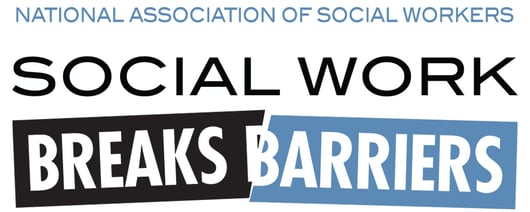 March is Social Worker Appreciation Month, a time we honor and recognize the important role that social workers play in our society, and specifically, the Foster Care System. Social workers are crucial in ensuring the safety and well-being of children in need. For some children in foster care, their social worker is the most consistent presence they’ll have throughout their adolescence. It’s a great privilege and responsibility that social workers feel called to.
March is Social Worker Appreciation Month, a time we honor and recognize the important role that social workers play in our society, and specifically, the Foster Care System. Social workers are crucial in ensuring the safety and well-being of children in need. For some children in foster care, their social worker is the most consistent presence they’ll have throughout their adolescence. It’s a great privilege and responsibility that social workers feel called to.
Social Work Appreciation Month 2023 Theme
In addition to celebrating the important role of social workers in foster care, it's important to note that this year's theme for Social Worker Appreciation Month is "Social Work Breaks Barriers”. The National Association of Social Workers (NASW) chose this theme to recognize the many ways social workers break down barriers and build stronger, more equitable communities.

This theme is especially relevant to the foster care system, where social workers work tirelessly to break down barriers that prevent children from receiving the support and care they need. They work to break down barriers between foster parents and birth families, ensuring that children maintain important connections with their biological families even as they are placed in a new home. They also work to break down barriers to education, healthcare, and other essential services, ensuring that children in foster care have access to the resources they need to thrive.
How Foster Care Social Workers Make a Difference
Assessing and Preparing Families
One of the primary roles of social workers in foster care is to assess and prepare families who are interested in becoming foster parents. Social workers evaluate potential foster parents' backgrounds, lifestyles, and living arrangements to ensure that they can provide a safe and stable environment for a child in their care. They also provide training and support to help prepare foster parents for the challenges and rewards of fostering.
Matching Children with Families
Social workers will match children with foster families, also known as placing. They consider a wide range of factors, including the child's age, background, and needs, as well as the strengths and resources of potential foster families. The goal is to create the best possible match, one that provides the child with a safe, supportive, and nurturing environment.
Monitoring and Supporting Families
Once a child is placed with a foster family, social workers continue to monitor and support the family. They provide ongoing training, resources, and guidance to help foster parents meet the needs of the child in their care and that the foster parents have what they need as well. Social workers will conduct regular visits to ensure that the child is safe and well-cared for and to address any issues that may arise.
Advocating for Children
Social workers in foster care also serve as advocates for children, ensuring that their rights are protected and that they receive the services and support they require. They work with a wide range of professionals, including educators, medical professionals, and mental health providers, to ensure the child's needs are met in all areas of their life.
Social workers in foster care go beyond their day-to-day work with foster youth and also advocate for policy changes that benefit children and families. They work with legislators, policymakers, and other stakeholders to promote reforms that improve the foster care system and ensure that children receive the care and resources they need.
Social Workers in California
According to data from the Employment Development Department of California, there were approximately 33,800 social workers employed in the Child, Family, and School Social Work field in California. This field includes social workers who work in the foster care system, as well as those who work with families and children in other settings.
In terms of job outlook, the California EDD projects that employment in the Child, Family, and School Social Work field will increase by 5.9% from 2018 to 2028.
Celebrating Our Social Workers
This year's Social Worker Appreciation Month is an opportunity to celebrate the many ways that social workers in foster care break down barriers. These dedicated professionals are an essential part of California's foster care system, working tirelessly to support children and families to create stronger, more resilient communities.
They assess and prepare families who are interested in becoming foster parents, match children with families, monitor and support families, and advocate for children's rights and needs. We owe a debt of gratitude to these dedicated professionals who work tirelessly to ensure that every child has the opportunity to grow and thrive in a safe and loving environment.
We thank them for all that they do to support children and families in need, and for their unwavering commitment to creating a better world for everyone.
Victor is committed to empowering individuals and families through a range of holistic mental health services, educational programs, and community resources. While we no longer provide foster services, we remain dedicated to supporting you by connecting you with foster care agencies in your region to access the resources you need.
For more information about our programs and how we can help, visit our website or contact us today.
